Books of the month: From David Baddiel’s memoir to the first biography of Paul Foot
Martin Chilton reviews the biggest books for July

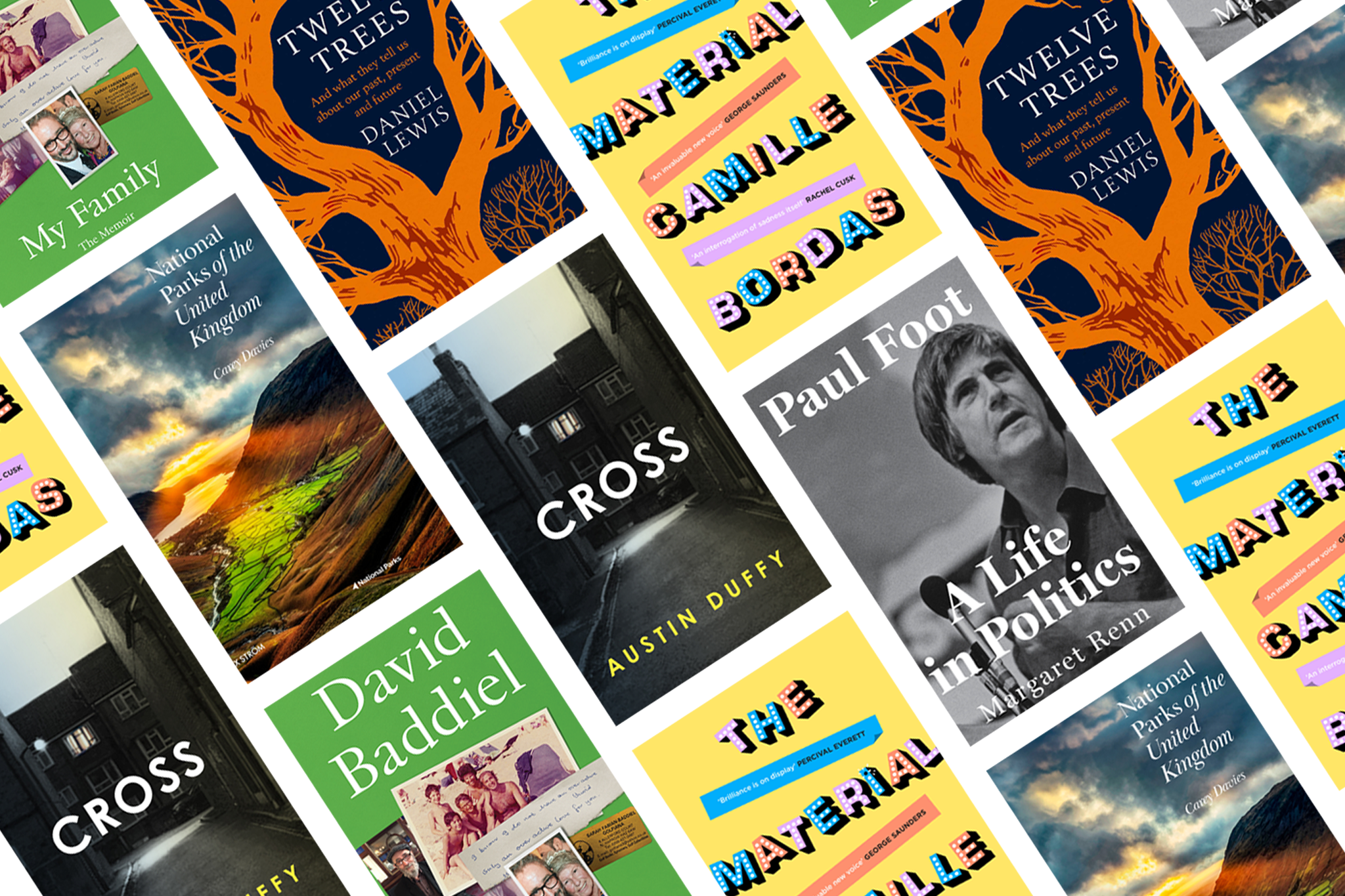
When it comes to first novels (in most cases), you are just evaluating the book without knowing much about the author. That’s obviously not the case with Hollywood superstar Keanu Reeves’s The Book of Elsewhere (Del Rey, co-writer China Miéville), which is inspired by the BRZRKR comic series and Reeves’s upcoming Netflix film. Given the nature of the prose on a randomly opened page (“this interaction was not to be a liaison of any occulted elect”), there may be more dazzling debuts out there and July is certainly lush with them.
Not all this month’s debuts are by sapling writers. I enjoyed Jane Campbell’s 2022 short story collection Cat Brushing and the octogenarian’s novel Interpretations of Love (Riverrun), set in the 1940s, has moving things to say about grief. Among the other debuts worth checking out are Orlaine McDonald’s No Small Thing (Serpent’s Tail), a taut generational story set on a south London estate; and Essie Chambers’s Swift River (Dialogue), set in a moribund New England mill town and about a lonely teenager called Diamond and her search for the truth about her dead father. Olivia Petter, who writes regularly for The Independent, explores celebrity culture and consent in Gold Rush (4th Estate), a sharp, eye-opening #MeToo tale about what happens when a young PR called Rose has a fling with a famous pop musician.
Poet Hannah Regel deals with young womanhood and a crisis of desire in her moving, lyrical debut The Last Sane Woman (Verso). Debut novels, even ones as accomplished as Paddy Crewe’s My Name Is Yip, are supposedly followed by the “difficult second novel” (a cliche, in any case), but this is certainly not applicable to Crewe’s accomplished second work True Love (Doubleday), an affecting tale of the relationship between Keely and Finn.
Finally, a nod of praise to Andrew Blauner, editor of On The Couch: Writers Analyze Sigmund Freud (Princeton University Press), for overseeing a stimulating collection of viewpoints. The book brings together 25 writers, including Susie Orbach and Siri Hustvedt, to have their say on different aspects of the legacy of the world’s most famous and controversial shrink. The two essays that stood out for me were Colm Tóibín on “Freud and the Writers” – which sheds a new light on the private desires of Henry James – and transgender activist Jennifer Finney Boylan’s witty take on “Penis Envy”.
A biography of Paul Foot, David Baddiel’s family memoir, novels by Camille Bordas and Austin Duffy and non-fiction about trees and parks are reviewed in full below.
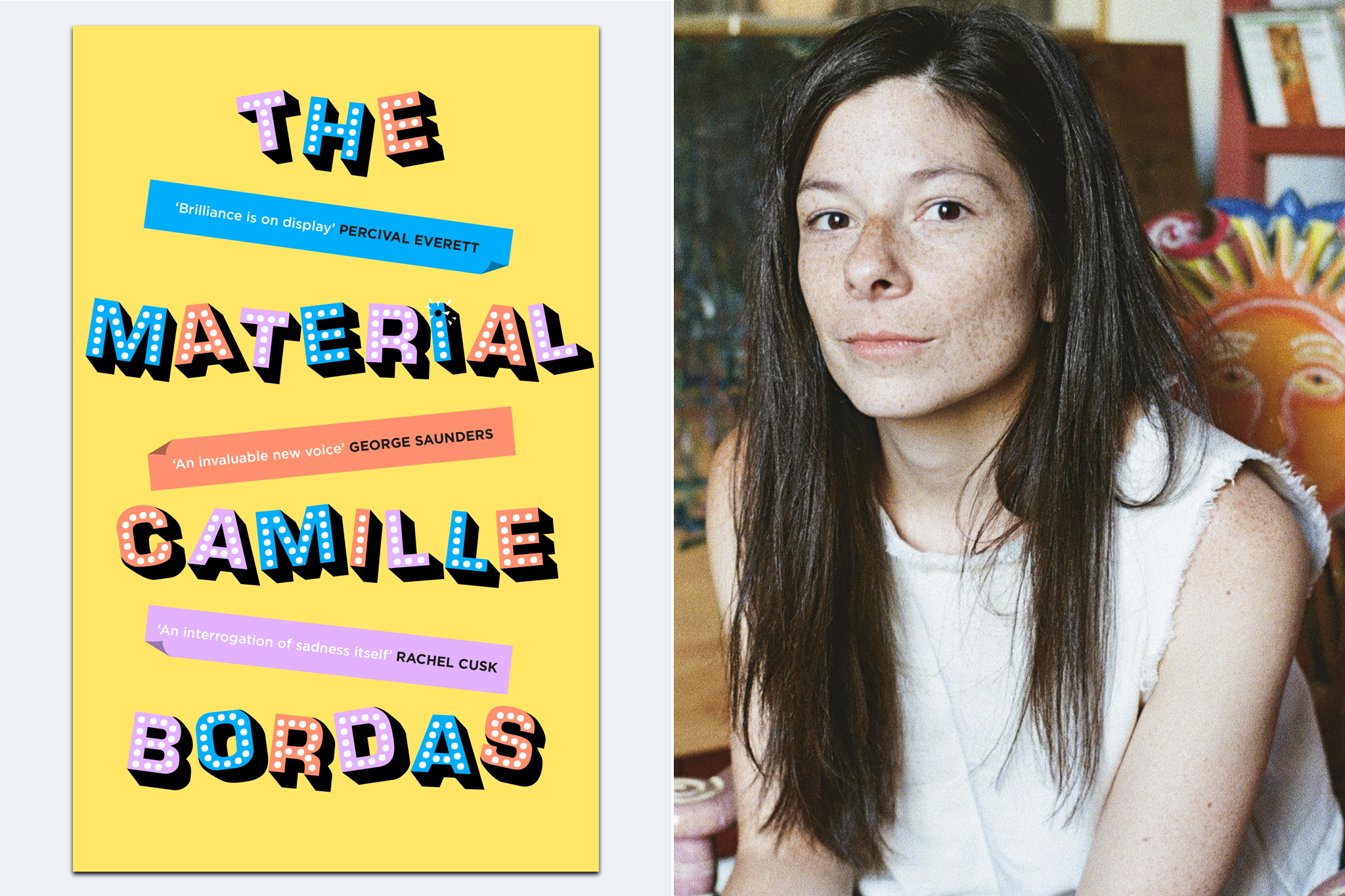
The Material by Camille Bordas ★★★★☆
Bordas, who was born in Lyon, France, and raised in Mexico City, has a marvellously engaging and entertaining tone. Her new novel The Material is set over the course of an eventful day in the lives of a group of comedians brought together by the Chicago Stand-Up School. The characters, young and old (the ambitious students Olivia and Artie and the jaded older teachers Kruger and Dorothy) end up in a comedy club with the controversy blighted celebrity Manny Reinhardt.
The Material is full of terrific moments and cutting dialogue and Bordas deftly uses humour as a cloak for her lancing insights about cancel culture, popular taste, the ease with which some people are offended, morality and artificial intelligence (or artificial stupidity). She also has penetrating things to say about philosophy and practice of comedy.
It’s certainly not a heavy novel, though, and among the witty highlights are an extended rift on taking an “anxiety shit”, jokes about disappointment sex, adults who read YA novels, academia and even one unexpected jest that links Paulie Walnuts from The Sopranos to Virginia Woolf.
I enjoyed the humour, the moments of sadness, the wisdom about the peculiarities of family relationships and Bordas’s gift for saying unsettling things, including about novelists who take themselves too seriously. “It has to suck,” Olivia says, “going through life thinking that what you do matters at all.” Ouch.
‘The Material’ by Camille Bordas is published by Serpent’s Tail on 4 July, £16.99
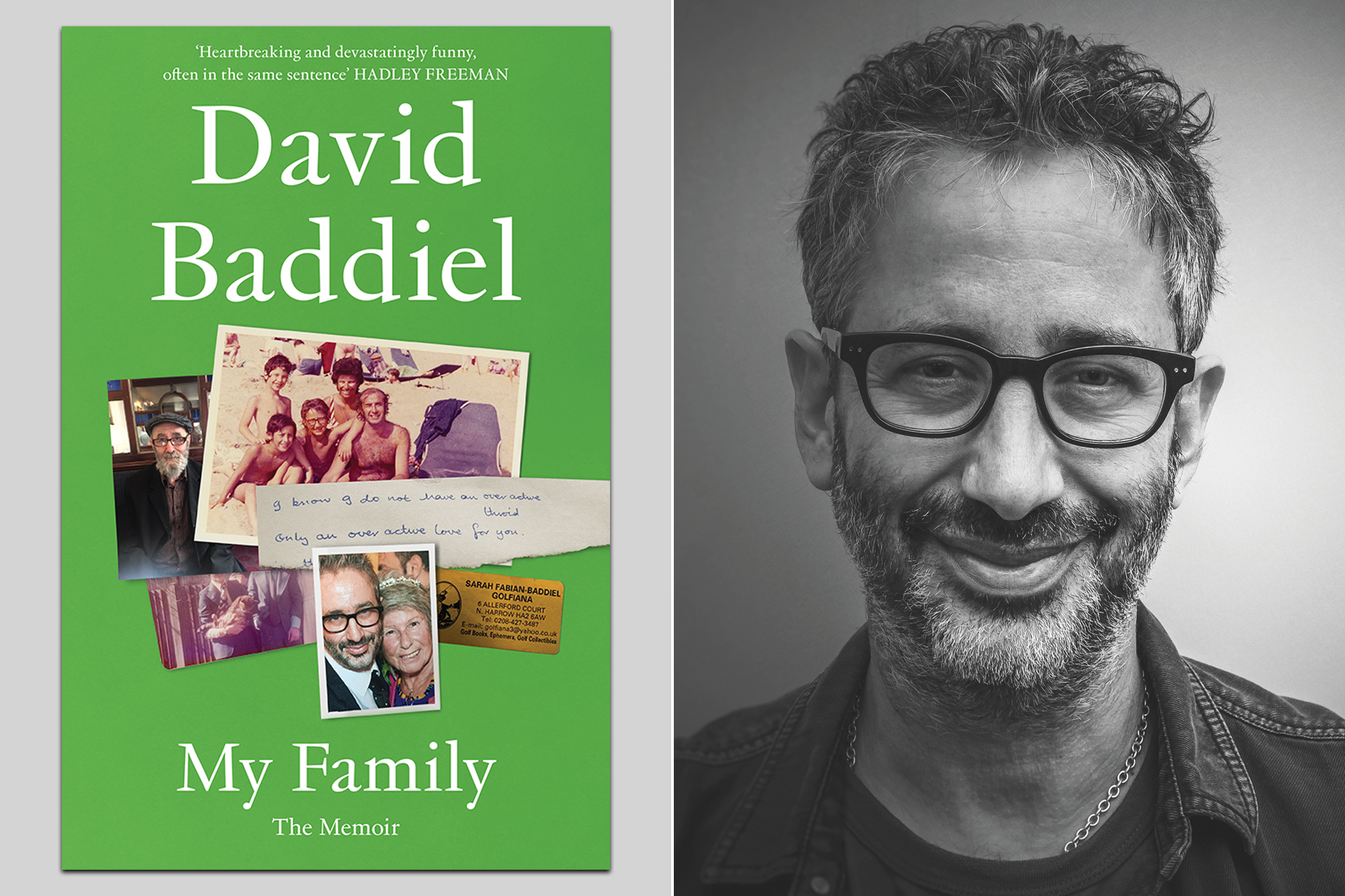
My Family: The Memoir by David Baddiel ★★★★☆
Baddiel is not kidding when he says he picked up from his mother Sarah “a very acute lack of shame”. His candid, playful and strangely forlorn family memoir of growing up in a Jewish household in Dollis Hill presents a picture of an upbringing that was both ordinary and unglamorous and also weird and dysfunctional, in the ways that home lives of the 1970s often were, to be honest. In Baddiel’s case, we get a somewhat unfiltered view of his parents, including the decline of his father Colin in the dementia years.
Much of the book concerns his belligerent father and his mother’s long-running affair with a bearded golf bore called David White, who obviously warmed more than just the cockles of her heart (she very deliberately let her sons know that he left her clitoris “on fire”). Despite her noisy sex life with Colin, a PhD chemist and later a Dinky Toys salesperson, it was an empty marriage and she rather poignantly and revealing admits to her son that “it’s so tiring, living without an emotional life”. Both parents, it seems, passed on to David a love of pornography.
Baddiel certainly makes clear that a love of porn is not something he is remotely bothered about revealing. In fact, the memoir cheerfully includes dozens of embarrassing stories told against himself, including the time he failed to recognise that the Sky executive he was denigrating as “this f***ng awful woman” was, in fact, among the guests he was dining with at that very moment.
There are also memorably funny stories about Peter Gabriel, Andrew Lloyd Webber, Prince Edward and Michael Barrymore. I particularly enjoyed the story about Baddiel’s mother and her unabashed attempt to blag multiple pantomime tickets from Christopher Biggins. My Family is an entertaining, bawdy memoir, and the quirky family photographs add to its appeal.
‘My Family: The Memoir’ by David Baddiel is published by 4th Estate on 4 July, £22
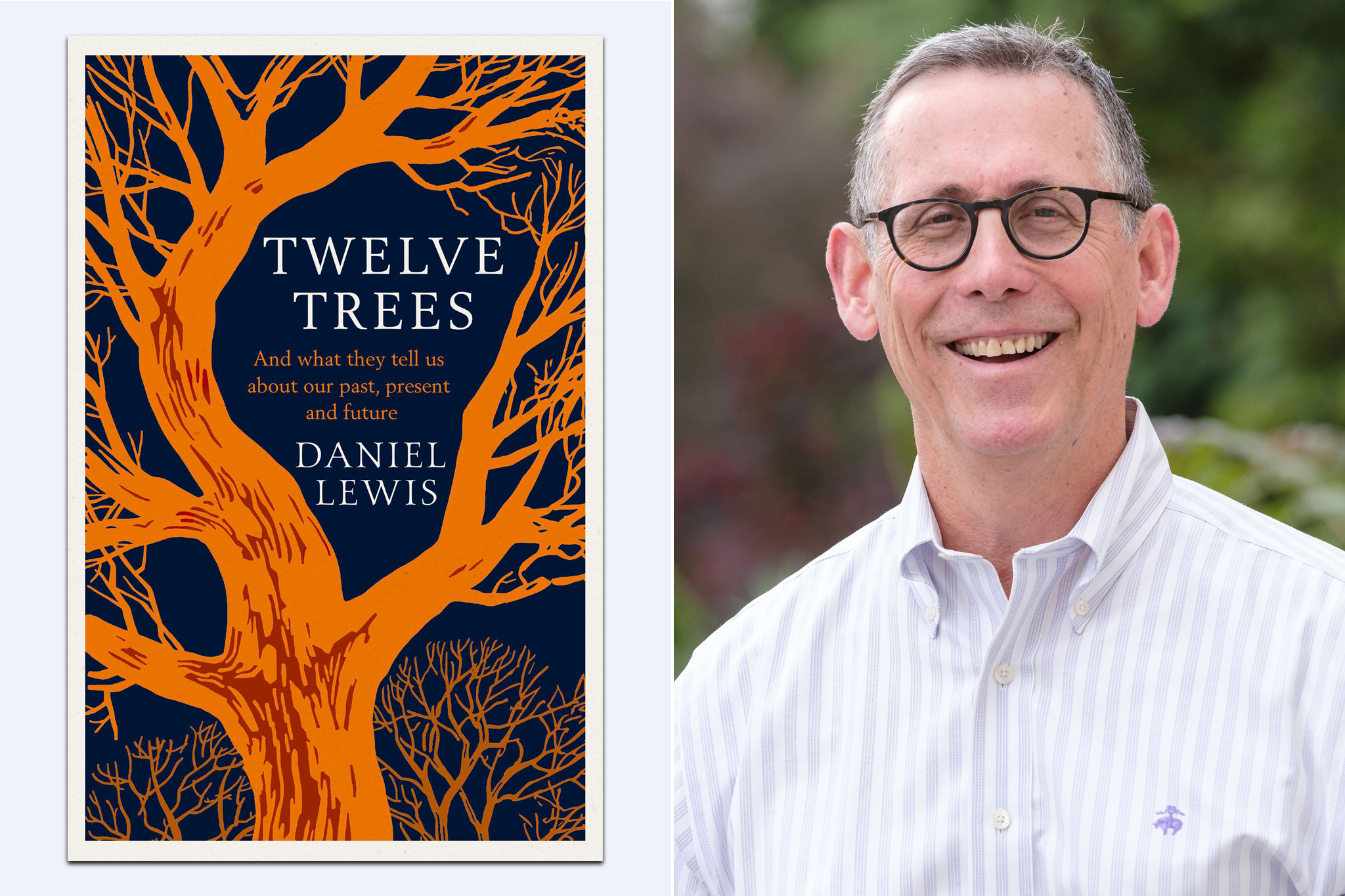
Twelve Trees: And What They Tell US About Our Past, Present and Future by Daniel Lewis
As someone who regularly talks to the century-old copper beech tree in my garden, I was easily won over by environmental historian Daniel Lewis’s assertion that trees are “essential to all our lives”. His study of 12 particularly unusual and significant trees – including the bristlecone pine, the coast redwood, the east Indian sandalwood, the Tasmanian blue gum eucalyptus and the African ebony – is a heartwarming guide to these fascinating giants of nature.
The book is also worrying. Lewis deals with climate change – switches in temperature and moisture will probably mean shorter trees in the future – and the threat of extinction to glorious trees such as the baobab. He deals with the natural and human perils to trees, including illegal logging and commercial exploitation, in a book that is full of surprises.
In an engrossing chapter on the olive tree, he makes clear why smaller, conservation-minded farming is a better idea than large-scale industrial farming, citing how industrial picking of olives is fraught with problems. When businesses harvest lucrative olives in Europe using “vacuuming techniques” and automated harvesting machines, the unwelcome result is called “bycatch”. This is when the machines “unintentionally suck up millions of songbirds annually in Spain and Portugal”. As Lewis notes, in this highly empathetic and informative study, “Slow-motion work not only makes for better olive oil but is better for the natural world.”
Sometimes humans really can’t see the forest for the trees.
‘Twelve Trees: And What They Tell US About Our Past, Present and Future’ by Daniel Lewis is published by Simon & Schuster on 4 July, £22
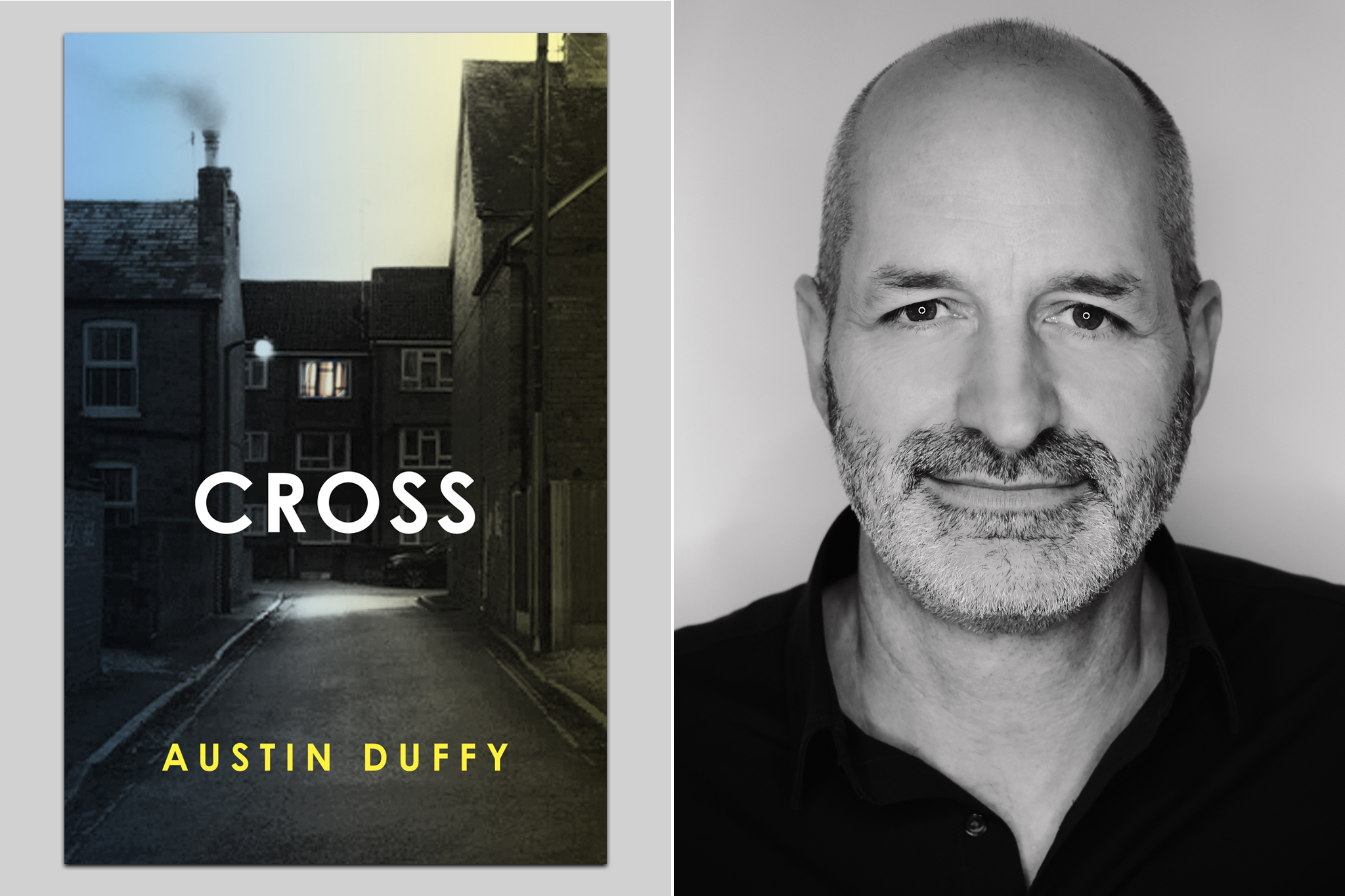
Cross by Austin Duffy ★★★★☆
Duffy’s new novel is set in the Northern Ireland border town of Cross in 1994, four years before the Good Friday Agreement, and explores sectarian divisions and terror in a republican stronghold.
Dundalk-born Dr Duffy, consultant medical oncologist at the University Hospital, Dublin, puts violence under an incisive writer’s microscope, forensically examining the motives of criminals in this blistering and extremely troubling novel.
Cross is a lawless town and the abhorrent murderers – and their enablers – are vividly drawn. Some of the young thugs, giddy on brutality (giddy is a word that recurs in the novel) are both cold-hearted and grotesquely comic (one gangs sit round eating Chinese food and salivating over Hollywood muscle man Jean-Claude Van Damme, for example). Duffy offers a portrait of a sadistic Ireland that is hopefully gone permanently, but the things he has to say about mob behaviour, codes of silence and solipsist justifications for bloodshed are startingly relevant.
When a child rape and betrayals bring tensions to a head in Cross, Duffy ties everything together in a taut, nuanced final section. Cross is a riveting read but it’s a hard one, especially the graphic and haunting description of an attack by a local girl and a republican thug on a harmless, bewildered student, an assault that seems to illustrate perfectly how violence seeps into communities under the sway of vicious dictators, even local ones in a small Irish town.
‘Cross’ by Austin Duffy is published by Granta on 4 July, £14.99
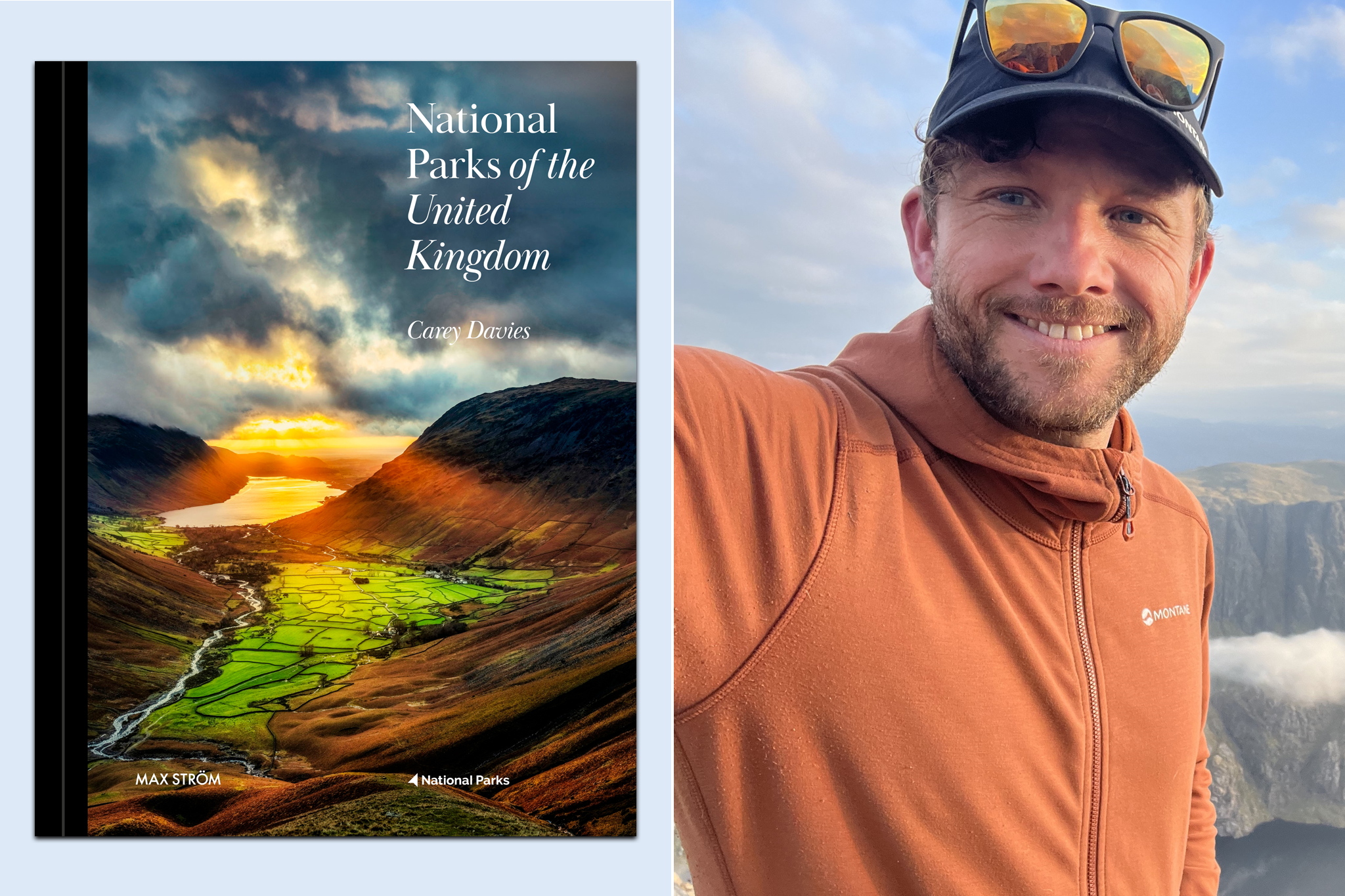
National Parks of the United Kingdom by Carey Davies ★★★★☆
The 15 national parks of the UK are in remarkably diverse locations – including the sub-arctic mountains of the Cairngorms in Scotland and the rolling hills of the South Downs – and all feature in the gorgeously illustrated National Parks of the United Kingdom, published to celebrate the 75th anniversary of the national parks.
The book is large scale and the illustrations – of Dartmoor, New Forest, South Downs, Exmoor, Pembrokeshire Coast, Bannau Brycheiniog, Broads, Eryri, Peak District, Yorkshire Dales, North York Moors, Lake District, Northumberland, Loch Lomond & The Trossachs and Cairngorms – are stunning, both of the scenery and the precious wildlife living within.
The text, by freelance nature journalist Carey Davies, is full of interesting snippets. I learned that on Dartmoor, my nearest national park, “gravity itself is weaker than anywhere else in the UK” (down to a combination of latitude, altitude and the geology of less dense Dartmoor granite, I discovered upon further reading) and that the North York Moors fishing village of Staithes has the narrowest street in the North of England (45cm wide).
The book isn’t cheap (£40), but it is inspirational and will have any keen walker or nature lover wanting to visit all 15 parks, all of which should fill us with pride and wonder.
‘National Parks of the United Kingdom’ by Carey Davies is published by Max Ström on 4 July, £40
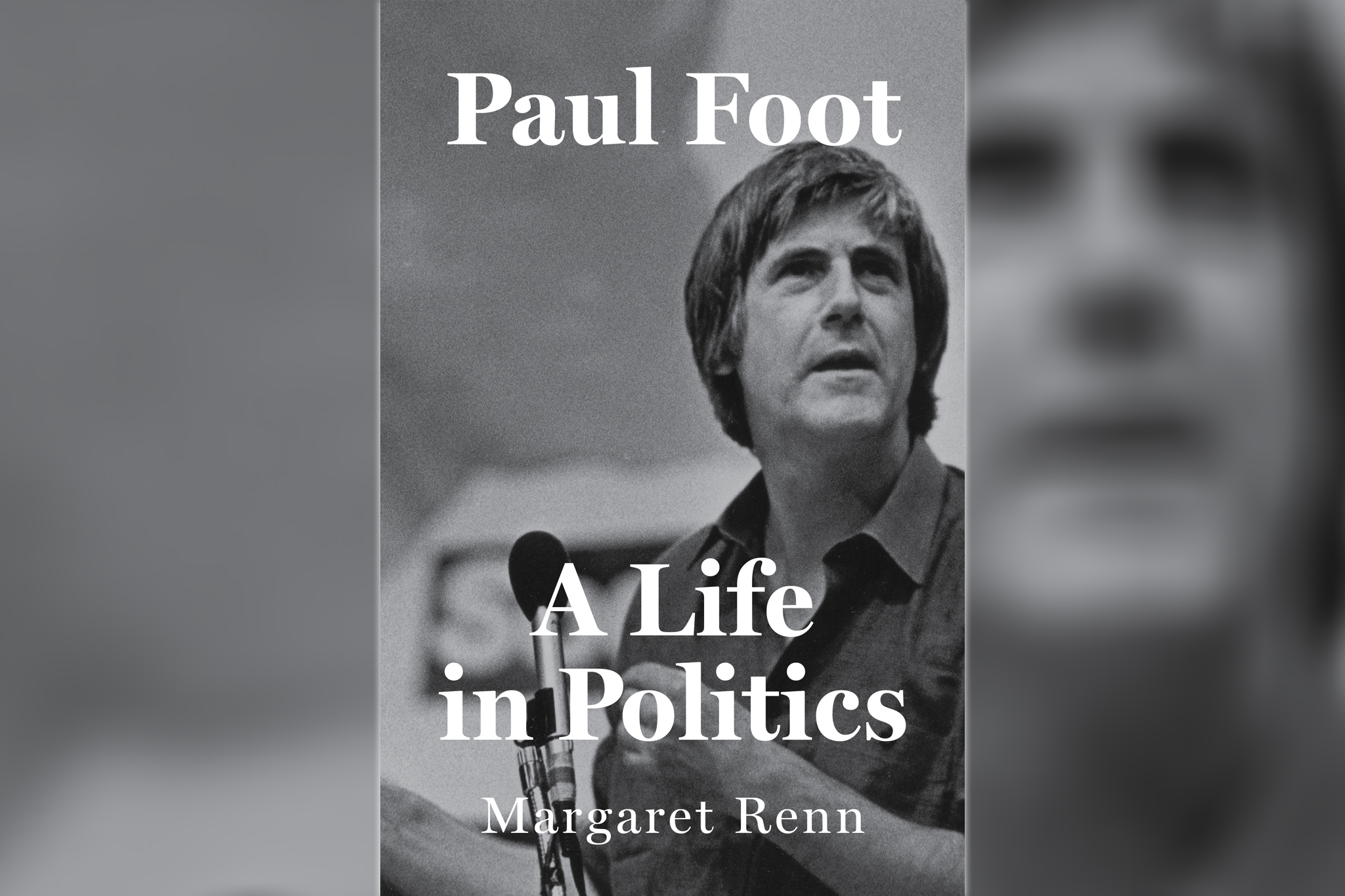
Paul Foot: A Life in Politics by Margaret Renn ★★★★☆
Foot, one of the great British investigative journalists of the 20th century, died at the age of 66 on 18 July 2004, and the first biography of him, written by former Socialist Worker colleague Margaret Renn, is a fitting tribute to a man who made his mark with Private Eye, the Mirror and even The Sunday Telegraph.
I was intrigued by many stories in the book – including those about Peter Cook, Richard Ingrams, Jeffrey Archer, Enoch Powell, Robert Maxwell, Jeremy Thorpe and John Lennon – and was struck by his reflections on having to do national service. How Foot would have scoffed at Rishi Sunak’s pathetic, half-baked plans to reintroduce it for 21st-century teenagers. For Foot, it was a breeding ground for “bullying, hierarchy and general unpleasantness”, full of “barking sergeant majors” and “mindless potato peeling”. It was also a hotbed of racism. Foot remembers being offered a place with the Jamaica Regiment and being told that it paid an additional eight shillings a day. “We call it w** money,” the racist officer told Foot.
Among the revealing personal details – I smiled at the image of Foot sulking after losing at tennis – we learn that he remained proud of his Devon roots and was buried in a wicker basket coffin draped in a Plymouth Argyle scarf. Foot spent his life exposing injustice, political opportunism and organised lying.
His legacy matters: Private Eye award an annual Paul Foot Award for investigative or campaigning journalism. The accounts of many of his press campaigns, including about the murders of Blair Peach, Helen Smith and Stephen Lawrence, still make for powerful reading.
‘Paul Foot: A Life in Politics’ by Margaret Renn is published by Verso on 16 July, £30
Join our commenting forum
Join thought-provoking conversations, follow other Independent readers and see their replies
Comments
Bookmark popover
Removed from bookmarks